Politics of the Qatar World Cup: The Bid and Tensions (Part II of IV)
Emir of Qatar Sheikh Hamad bin Khalifa Al Thani (left) receives World Cup trophy from FIFA President Sepp Blatter after the 2010 announcement that Qatar would host the 2022 World Cup
In the first part of this series, we discussed what got Qatar interested in using football as a means of profit. Now that they were interested, ideas to capitalize started forming during a time of tense politics in the Middle East.
Qatar had the best of both worlds; it invested in marketing itself like Dubai, but also had a vast gas deposit like Abu Dhabi. This gas deposit protected them from the 2008 financial crisis. Like Abu Dhabi, they went on a shopping spree of their own, buying marquee assets in Paris, London, and beyond. In 2009 Qatar embarked on its greatest, most ambitious project yet: a bid to host the 2022 World Cup. Hasan al Thawadi, the chief executive chosen to run the bid, said, “We are serious about winning the right to host the FIFA World Cup in the Arab world for the first time; We are offering FIFA an incredible event, with a tremendous football legacy, but also a legacy for humanity. Qatar 2022 can be a watershed moment.” Their bid was quite attractive; it talked of unity in the Middle East, the use of sustainable zero-carbon cooling technology to combat the heat, and flat-packed stadiums that would be taken down and rebuilt in Africa. Nobody believed in Qatar. They were a tiny country with almost no existing football infrastructure, not to mention the lack of a seriously competitive national team; furthermore, the temperature could reach 120 degrees Fahrenheit, even with air-conditioned stadiums.
On December 2nd, 2010, Sepp Blatter stood on a stage in Zurich, holding an envelope, the eyes of the world on him. Despite being a consummate showman, he looked nervous as he fumbled for the card inside. He pulled it out, announcing the winner of the race for the host of the 2022 World Cup, which had been viciously competitive, and embroiled in allegations of corruption. It was Qatar.
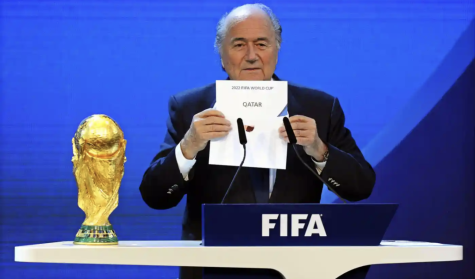
Earlier that fateful day, Russia had been announced the host of the 2018 World Cup, beating England’s bid. This decision was crucial. In 2014, the British parliament released a report outlining the work done by an investigative research company formed by ex-Mi6 (the British equivalent of CIA) agent Christopher Steele, keeping tabs on the Russian delegation on behalf of the failed English bid. Special attention was put on Roman Abramovich, who, they believed, had played a key role in winning the bid. An “ex-Mi6 source” (believed to be Steele) later told the Sunday Times, “When Abramovich turned up in South Africa [2010 World Cup host] and started glad-handling people, that was a turning point.” Steele later went into hiding after being outed as the author of a salacious raw intelligence dossier detailing the connections between Russia and then-future U.S. President Donald Trump. Bonita Mersiades, the member of the failed bid for 2022 by Australia, recounted to the BBC World Service the seriousness of the matter. “The intelligence agencies that were there said it was noticeable when the Russians turned up because nobody could hear or see anything. They had jammed everyone else’s devices.” Despite Russian mischief, the nation had yet to become the international outcast it is today, so it was Qatar’s announcement that made up most of the headlines. Around the world, there was disbelief. How on earth could Qatar have won?
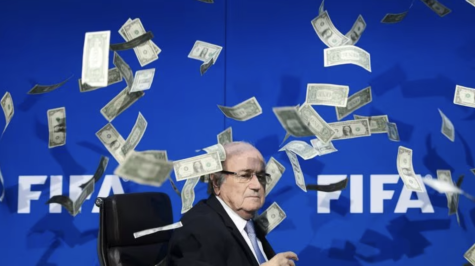
The entire bidding process for both the 2018 and 2022 finals had accusations of corruption from the start (which both Russia and Qatar continue to strenuously deny) Even before the vote, two members of FIFA’s 24-person Executive Committee that would decide the winner, had been suspended. Amos Adamu of Nigeria and Reynald Temarii of Tahiti were targeted by a Sunday Times undercover sting. Journalists went undercover as a fake consultancy, filming the pair agreeing to vote for the US bid in exchange for millions of dollars to fund personal projects. There was also controversy surrounding the Qatari president of the Asian Football Confederation Mohammed Bin Hammam, one of the most powerful men in footballing politics. He was rumored to have played an important role in lining up support for the bid behind the scenes.
Immediately after the 2010 bids, Bin Hammam challenged Sepp Blatter for the position of president and came close to replacing him, but was hindered by allegations that he had approved bribes in return for votes. FIFA banned him from football activities for life, but he appealed and won a reprieve from the court of Arbitration for Sport. Although he never confessed to any wrongdoing, he quit football and returned to Qatar. The ban was reinstated 6 months later after the FIFA Ethics Committee’s investigation found Bin Hamam guilty on a separate charge of breaching FIFA’s ethics code (with regards to his conflict of interest between his job as AFC president and a member of FIFA’s executive committee).
But most intriguing of all was Qatargate. Shortly after having won the host position for the World Cup, the Qatar Investment Authority went on to buy PSG. Al Jazeera sports also reached a deal with Ligue 1 worth 450 million euros over five seasons for TV rights. An investigation by France Football alleged that UEFA president Michel Platini had been asked by then-French president Nicolas Sarkozy to vote for Qatar; it is alleged that Sarkozy had hosted a secret lunch at the Elysee with the crown prince of Qatar Sheikh Tamim bin Haman al Thani and Platini. It was at this lunch that the Qatari delegation supposedly offered to buy PSG (the team Sarkozy supported), clear its debt, and start a new sports TV network from Al Jazeera to buy French televised football rights; the spin-off eventually became known as beIN Sports. Sepp Blatter told the Financial Times in 2014 that Platini and the rest of the FIFA executive committee had a “gentleman’s agreement” that the US should win the bid. “Just one week before the election, I got a phone call from Michel Platini and he said, ‘I am no longer in the picture because I have been told by the head of state that we should consider the situation in France.’”
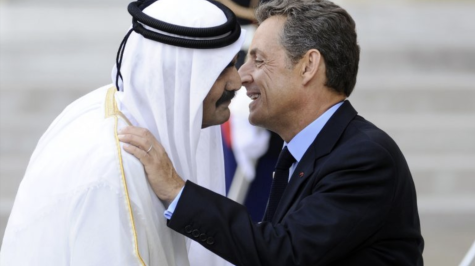
Qatar has always denied any suggestion they won the bid improperly. Platini responded saying, “To say that was my choice … was part of a deal between the French state and Qatar is pure speculation … and lies. I do not rule out legal action against anyone who casts doubt on the honesty of my vote.” Sarkozy has never publicly commented on the matter, but it is believed he denies the allegations as well. Subsequently, FIFA was forced to commission an investigation amid the controversy.
Former US Attorney for the Southern District of New York Michael J. Garcia led the investigation and released the “Garcia Report” two years later. FIFA refused to release it fully and initially, a heavily abbreviated summary was given to the public; this summary exonerated Qatar and Russia. Garcia resigned, saying that his work had been misinterpreted. However, the Garcia report and a subsequent US Justice Department investigation helped uncover decades of historic allegations of corruption.
Of the 24 members of the FIFA Executive Committee, 9 (Blatter, Bin Hammam, Platini, Adamu, Temani, as well as Jack Warner, Ricardo Texiera, Chung Mong-Joon, and Rafael Salguero) were banned from football for a variety of offenses that came to light after the vote. Some were related to the vote itself, while others were for historical allegations of corruption. Platini was banned from football by FIFA for 4 years due to an unrelated $2 million payment he received from Blatter in 2011. Around that time, Platini was considering challenging Blatter for FIFA president. Both men said the payment was for work Platini had done years earlier. Blatter was also banned over the Platini payment. In 2019, Platini was questioned by the French authorities over Qatar 2022. He denies any wrongdoing.
Their investigation into allegations of corruption surrounding the bid remains ongoing. Two more, FIFA Senior Vice-President and Chairman of the FIFA Finance Committee Julio H. Grondona as well as Nicolas Leoz, were accused of corruption but have since died. Chuck Blazer—a former US soccer executive who famously had two apartments in Trump Towers (one of which was for his cats) and traveled around his New York neighborhood on a mobility scooter with his pet parrot on his shoulder—was swept up in a US federal investigation, where he was charged with tax evasion, and later turned state’s witness, admitting he conspired with other FIFA Executive Committee members to accept bribes concerning previous World Cup bids. He died in 2017. 7 more were later cleared from allegations of corruption. A further but separate three later retired: Junji Ogura, Geoff Thompson, and Senes Erzik. Hany Abo Rida is still at FIFA, as is Michel D’Hooghe, who was cleared of any wrongdoing by the FIFA Ethics Committee over a “small painting” gifted to him by the Russian 2018 bid and the fact his son secured a job in Qatar after the vote.
Corruption in World Cup bids is nothing new. Allegations surrounded the successful bids for both the 2006 World Cup bid from Germany and the 2010 World Cup bid from South Africa. Franz Beckenbauer was accused of bribery surrounding Germany’s bid (which he denied). A Swiss trial over the matter ended in 2020 without a verdict after Switzerland’s 15-year statute of limitations expired.
Qatar played the marketing game better than the rest. Take Aspire, for example, which five years later had been opened by Pele and Maradona. In a few years, Qatar had to identify and recruit talent in previously overlooked or underdeveloped footballing nations. 6 of the 15 Football Dreams programs were in countries that were represented on FIFA’s Executive Committee (although Qatar has claimed their choices for Football Dreams weren’t influenced by the nationalities of those whose hands held Qatar’s World Cup fate). The US and England were bragging to the world about their stadiums and their sound bids. Meanwhile, Qatar, which was deemed “High Risk” by FIFA due to the dangerous summer heat, Qatar bragged to the men who had an actual say by doing humanitarian projects in their countries. They could also count on World Cup ambassadors like Zinedine Zidane, Pep Guardiola, and others.
There were also high politics. In 2015, the Sunday Times claimed the intelligence gathered by the England bid had raised suspicions that a significant gas deal made between Qatar and Russia may have been part of a World Cup vote swap deal. Another huge gas trade was also allegedly made with Paraguay. This could all be a coincidence, and all three countries deny any connection between the deals and the bid. In 2010, Qatar won. They hoped the controversy around the bid would settle down and be long forgotten by the time they hosted the tournament 12 years later. But then, an unexpected event in North Africa turned everything on its head.
On the 17th of December that year, 15 days after Sepp Blatter had declared Qatar winners of the bid, 26-year-old Mohamed Bouazizi set himself on fire in Sidi Bouzid, a city in central Tunisia. Bouazizi was a vegetable seller who was regularly harassed by government officials looking for bribes. One day his cart was overturned and his weighing scales were impounded. After petitioning the governor to get his scales back, and not getting an answer, he poured a bottle of paint thinner over his head and set himself alight. Burns covered 90 percent of his body, and he succumbed two weeks later. Protests began, first in Sidi Bouzid, then in the capital Tunis.
Mohamed Bouazizi’s suicide sparked a wave of protests known as the Arab Spring, which spread across North Africa and the Middle East throwing long-time autocrats from power.
In Egypt, the long-time dictator Hosni Mubarak was removed from power after hundreds of thousands of people filled Tahrir Square. Egypt turned to democracy, and after their first ever free elections, Mohamed Morsi became president, a candidate aligned with the Muslim Brotherhood, a popular Islamist organization banned in much of the Middle East for posing a significant threat to the Gulf’s conservative autocratic monarchies.
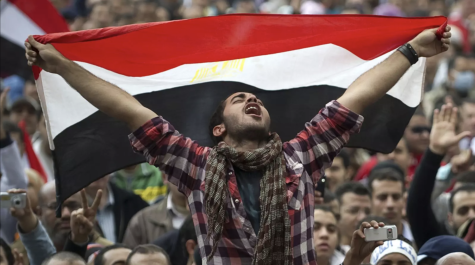
The Arab Spring terrified these monarchies, especially Saudi Arabia, the UAE, and Bahrain, who all feared they would be next. But not Qatar. After more than a century of mediation, surviving between major regional superpowers, and then Crown Prince Sheikh Hamad bin Khalifa al-Thani having observed firsthand how Saddam Hussein had invaded Kuwait and waltzed into Arabia, Qatar managed to balance an independent foreign policy.
They openly supported the Arab Spring uprisings, as well as Islamist groups like the Muslim Brotherhood. The Taliban and Hamas were also hosted in Doha. Qatar also maintained a good relationship with Israel and, crucially, Iran, whom they share a major gas field with— although Iran is also seen as an existential threat to its neighbors (much like the Brotherhood was). Simultaneously, the Al Udeid Air Base was now home to the US Central Command in the region, guaranteeing Qatar’s safety; militarily, at least.
Qatar found itself in opposition to the Saudis and the UAE. They had loaned billions of dollars to prop up the Morsi government in Egypt. When Morsi was eventually removed from power in a military coup in 2013, the UAE and Saudi Arabia promised upwards of $12 billion of aid to support the new leader Abdel Fattah el Sisi’s anti-Muslim Brotherhood regime.
The two sides, essentially, had been at war via their various proxies in Syria and later Libya for years. What truly antagonized Qatar’s neighbors was Al Jazeera, which gave airtime to open critics of the policies of Saudi and Emirati leaders all the while refraining to criticize the al Thanis who bankrolled it. The Saudis and Emiratis then accused Qatar of using Al Jazeera to agitate opposition. Tensions between Qatar and its neighbors were so bad that Saudi Arabia, the UAE, Bahrain, and Egypt briefly withdrew their ambassadors from Doha in 2014.
At the same time, a crucial once-in-a-generation change in power was taking place, welcoming three crown princes. Since the 2008 global financial crisis, then the Arab Spring, Crown Prince of Abu Dhabi Sheikh Mohammed bin Zayed had turned the UAE into one of the world’s most pervasive security states with a hawkish, interventionist foreign policy. In 2013, Qatar’s Emir Hamad bin Khalifa al Thani abdicated and peacefully transferred his power to his young son Sheikh Tamim bin Hamad al Thani. Two years later in Saudi Arabia, Salman bin Abdulaziz Al Saud became king. His son Mohamed bin Salman became defense minister and deputy crown prince (he would not be happy with that position for long).
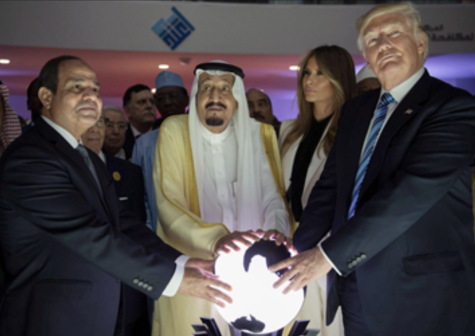
Perhaps the most consequential development was taking place thousands of miles away in the U.S., where, in November of 2017 Donald J Trump was elected president. Saudi Arabia and the UAE were supporters of Trump after becoming enraged with President Barack Obama’s nuclear deal with Iran. On Trump’s first foreign trip as president, he went to Riyadh and was received like a king and charmed by Mohammed bin Salman. The Saudis convinced him that Qatar was the antagonist. His actions would go on to have a tremendous effect on not only the World Cup, but also on Middle Eastern politics.

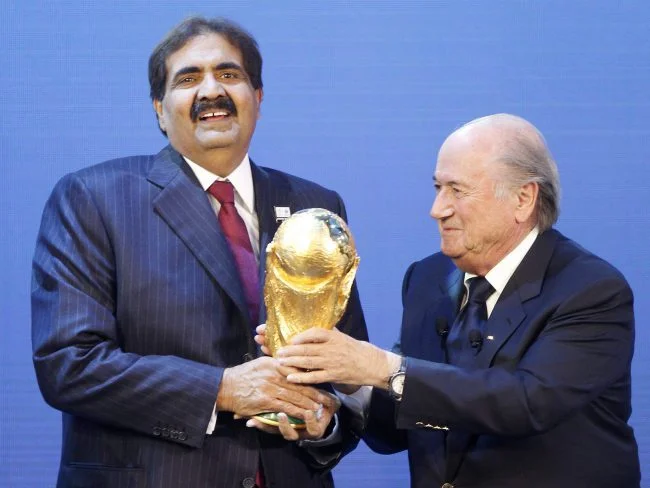
Dimitri • Mar 12, 2023 at 10:07 pm
This was amazing i support reading it